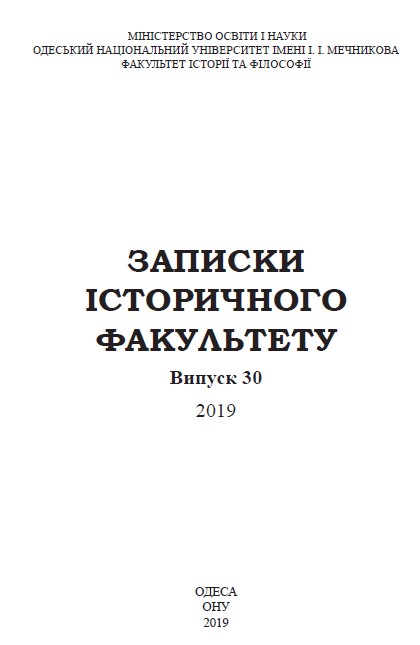ЖІНОЧЕ ПИТАННЯ В НАЦІОНАЛЬНО-ВИЗВОЛЬНОМУ РУСІ МУСУЛЬМАНСЬКИХ КРАЇН (НА ПРИКЛАДІ ТУНІСУ)
WOMEN'S ISSUES IN THE NATIONAL LIBERATION MOVEMENT OF MUSLIM COUNTRIES (ON THE EXAMPLE OF TUNISIA)
Author(s): Svitlana GladchenkoSubject(s): Political history, Social history, Gender history, Politics and religion, Politics and society, Social differentiation, Sociology of Culture, Interwar Period (1920 - 1939), WW II and following years (1940 - 1949), Post-War period (1950 - 1989), Sociology of Politics
Published by: Видавництво «Одеський національний університет І. І. Мечникова»
Keywords: Tunisian women; westernized; emancipation; Tunisian society; the socio-cultural traditions; modernization of the Tunisian society;
Summary/Abstract: The main idea of the article is the specificity of the modernization of the Tunisian society, as well as its gender aspect, is largely due to the fact that this process, thanks to the efforts of the ruling elite, began before the establishment of the colonial regime. In the context of the existing Islamic tradition, the degree of engagement of women in the social or productive spheres was conditioned by social differentiation. After establishing the French protectorate, actively using the administrative apparatus, encouraging the growth of the non-Muslim population, the French pursued a policy of cultural colonialism, which led to the design of the ideological and political realities of Tunisia in two directions. Representatives of the first direction continued the traditions of pre-colonial reformism, substantiating the idea of self-sufficiency of Islam. Representatives of the second, not denying the cultural significance of Islam, considered the prospects of modernization with the absorption of European experience. Representatives of Islamic modernism argued that, reformed and adapted to the spirit of time, Islam became the ideological basis of social development, in particular the release of women, whose primary role was to play education. The most radical of them questioned the use of hijab, as a purely Islamic tradition. Without denying the traditions of Islam, they advocated assimilation of the achievements of European culture, science and public opinion. The ideal of a new Tunisian woman appeared in the context of the synthesis of Islamic and Western cultures. He called for the emancipation of women and the reform of family-marital relations, taking into account the socio-cultural traditions of the Tunisian society.
Journal: Записки історичного факультету
- Issue Year: 2019
- Issue No: 30
- Page Range: 215-230
- Page Count: 16
- Language: Ukrainian

